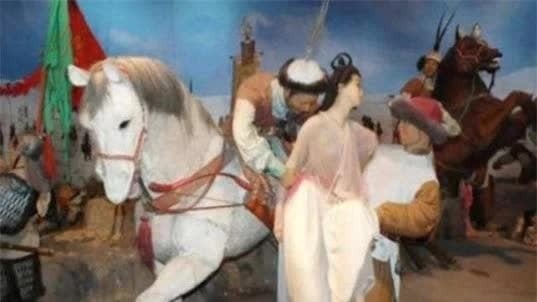## The Ancient Chinese Military: A Tale of Brutal Warfare and its Toll on Women
In ancient times, to protect their nation and guard against attacks from neighboring countries, Chinese dynasties built elite and powerful armies.
Similar to today, young men with aspirations to defend their families and homeland joined the military. However, unlike the present, where women are allowed to enlist, it was illegal for women to serve in the military during feudal times. Even the famous female general, Hua Mulan, had to disguise herself as a man when she took her father’s place in the army.
The rank and file of the army consisted primarily of young and middle-aged men, who were not only physically robust but also had high physiological needs. Ancient wars often lasted for years, sometimes even decades, leaving soldiers with little opportunity to return home. They were confined to strict military camps, far from their families.
How did ancient soldiers satisfy their physiological needs?
The prolonged suppression of physiological needs, coupled with the stress of rigorous training and the gruesome reality of the battlefield, could lead to psychological issues among soldiers. Some may even resort to extreme behaviors such as raping civilians.
To address this, and in an attempt to appease his troops, Viet Vuong Cau Tien implemented a cruel yet pragmatic solution: he ordered widows from across the country to be sent to military camps.

Some soldiers’ extreme behaviors included raping civilians.
While this improved the soldiers’ morale, it came at a terrible cost to the widows, who endured the humiliation of being forced to serve multiple men after the death of their husbands.
Although this practice provided psychological relief to the soldiers, it violated moral principles and incited anger among the populace. However, due to the low status of women in ancient times, their protests went unheard. With the belief that the means justified the end as long as the army fought well, this method of using women for the pleasure of soldiers was employed from the Western Han Dynasty onwards for thousands of years.
Later, during the reign of Han Wu Di, the system became more regulated, and instead of using widows, soldiers were allowed to “choose wives” from among the female prisoners or their daughters. Nonetheless, this arrangement remained unfair to women, especially the daughters of prisoners.
While these measures satisfied the soldiers’ physiological needs, they caused immense suffering to women and incited resentment among the people. Eventually, during the Ming Dynasty, Chu Yuan Zhang abolished this system to appease the populace.
Aside from this practice, there were other ways in which the physiological needs of ancient soldiers were addressed.
Firstly, although women were not allowed to fight, soldiers were permitted to bring their wives with them and live together in military camps. This not only fulfilled physiological needs but also ensured a stable supply of food and daily necessities for the troops.
However, this approach had limitations: soldiers had to adhere to strict discipline, endure harsh living conditions, and face the constant risk of death on the battlefield. Additionally, allowing only a select few soldiers to bring their wives could breed jealousy and desire within the camp.
Secondly, the court often granted soldiers a three-day period to “indulge” after capturing an enemy city. This included looting property and, unfortunately, taking advantage of the local women. During this time, the soldiers not only amassed wealth but also satisfied their physiological needs, leaving the women of the conquered city not only displaced but also abused.

Soldiers indulged in looting and taking advantage of local women after capturing an enemy city.
Thirdly, after a victory, the general would often lead the troops to local brothels to unwind. The women in these brothels, being on the losing side, were not paid and had no right to refuse the victorious soldiers.
Lastly, soldiers could capture women from the enemy camp as spoils of war. These women would then be distributed by the general to soldiers who had distinguished themselves in battle, and they sometimes served as “entertainment” to boost the army’s morale.
Whether in the past or present, war inflicts immense suffering on humanity. We yearn for a peaceful world, free from conflict, where people can live happily and harmoniously.



































